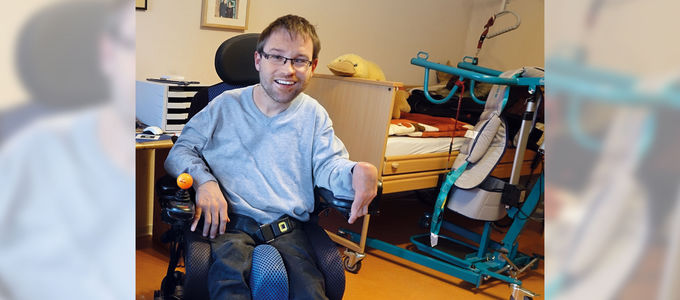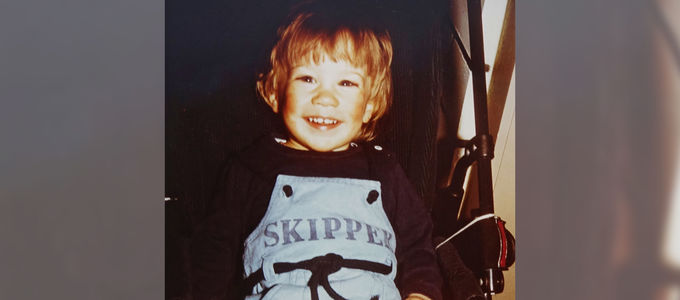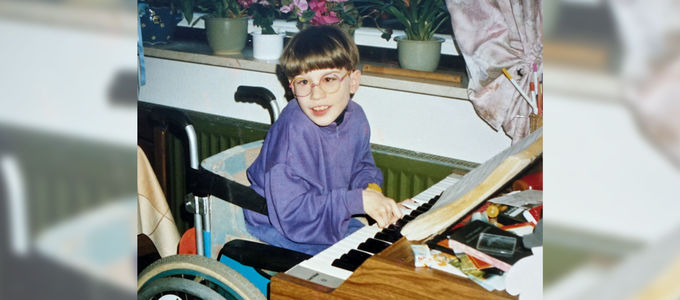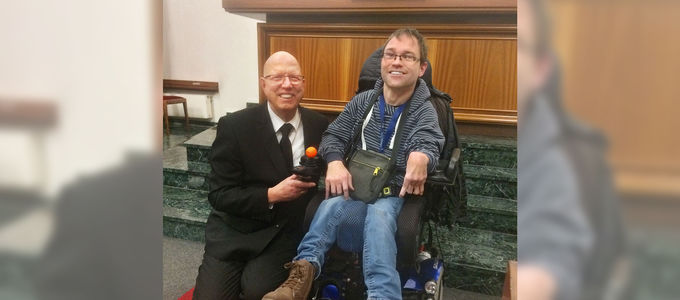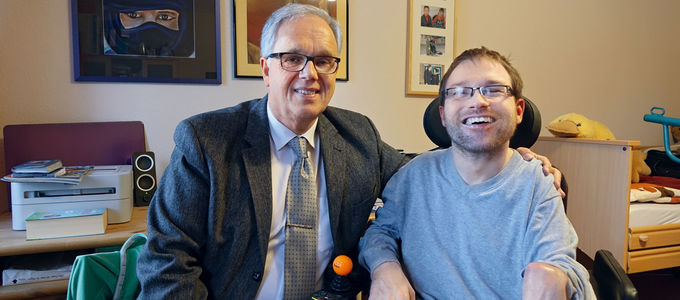“My friends, family, and congregation make me rich”
Christoph Baumgärtner has been in a wheelchair all his life, yet he radiates joy and gratitude. He gave us a glimpse of his day-to-day life.
A roomy bungalow in a very quiet neighbourhbood on the outskirts of the city of Lübeck in northern Germany. Christoph Baumgärnter shows us his room: a desk with a laptop, a keyboard, two cupboards, a bed. It would be a room like many others, if there were not a gadget next to the bed, which immediately attracts your attention: a lifting device. Christoph, 38 years old, needs help to transfer from his wheelchair to his bed.
His thanks goes to his parents
“There were complications when Christoph was born,” Priest Klaus Gatzke says, his uncle. “The newborn did not cry immediately and there was no ventilator nearby.” Bärbel, Christopher’s mother, passed away several years ago following a bout with cancer. Christoph’s father, Kurt—a Priest and the rector in the congregation of Bad Schwartau—passed away in 1995 already following a heart attack.
His cognitive development was age-appropriate, but unlike his peers, Christoph never learned to walk. “My parents always gave me the help I needed.” Thanks to them, he was able to complete his schooling.
On the street and in church
At age three, Christoph began to take piano lessons. In church services for people with disabilities in the Harsefeld congregation, he is usually in charge of the musical accompaniment on the electric piano. Many an officiant in Lübeck and the surrounding area counts on Christoph’s memory to prepare for a church service rather than reverting to a song concordance.
In many ways, Christoph is not able to determine his own day-to-day life. He needs assistance from others. In his spare time, Christoph likes to go into town or meet up with a friend. These are liberties he can take on his own steam. In summer, Christoph even goes to the island of Sylt with a carer. “I keep my keyboard in a hotel, play music on the street. The money I make supplements my pocket money a little,” Christoph says cheerfully.
Not without God and faith
His fixed weekly ritual includes trips to the divine services on Wednesdays and Sundays. To get there Christoph uses public transportation or assisted transport. He organises it himself. “I like the fellowship we have in church,” he says. “I could not imagine my life without God or faith.”
Christoph feels very much at home in the congregation. “The members accept me as I am. And no, I don’t think that the brothers and sisters are uncomfortable with my disability.” Christoph’s positive outlook is infectious. The man in the wheelchair doesn't hide the fact that he also has phases in which he is down, “But then the desire to go to church takes over; it’s much nicer in the congregation.”
He prefers openness rather than compassion
When asked whether he ever blamed God for his fate, he says, “No, never. Even when my parents died I was deeply saddened, but I did not blame God.” In his situation, which no one envies him for, Christoph remains compassionate and sensitive. “I spent three years in a centre for disabled children. I met children there who were worse off than I am. Their fate touched me.”
When asked how people react to him, Christoph says in a positive way. “Many are very helpful.” What he really likes is when people approach him in an open and friendly way. “One day a lady boarded a bus I was on. When she saw me she said in a voice loud enough for me to hear, ‘Oh, the poor man!’” How did he react? “I smiled. I don’t feel poor. My big family, the congregation, and my friends and acquaintances make my life rich.”


